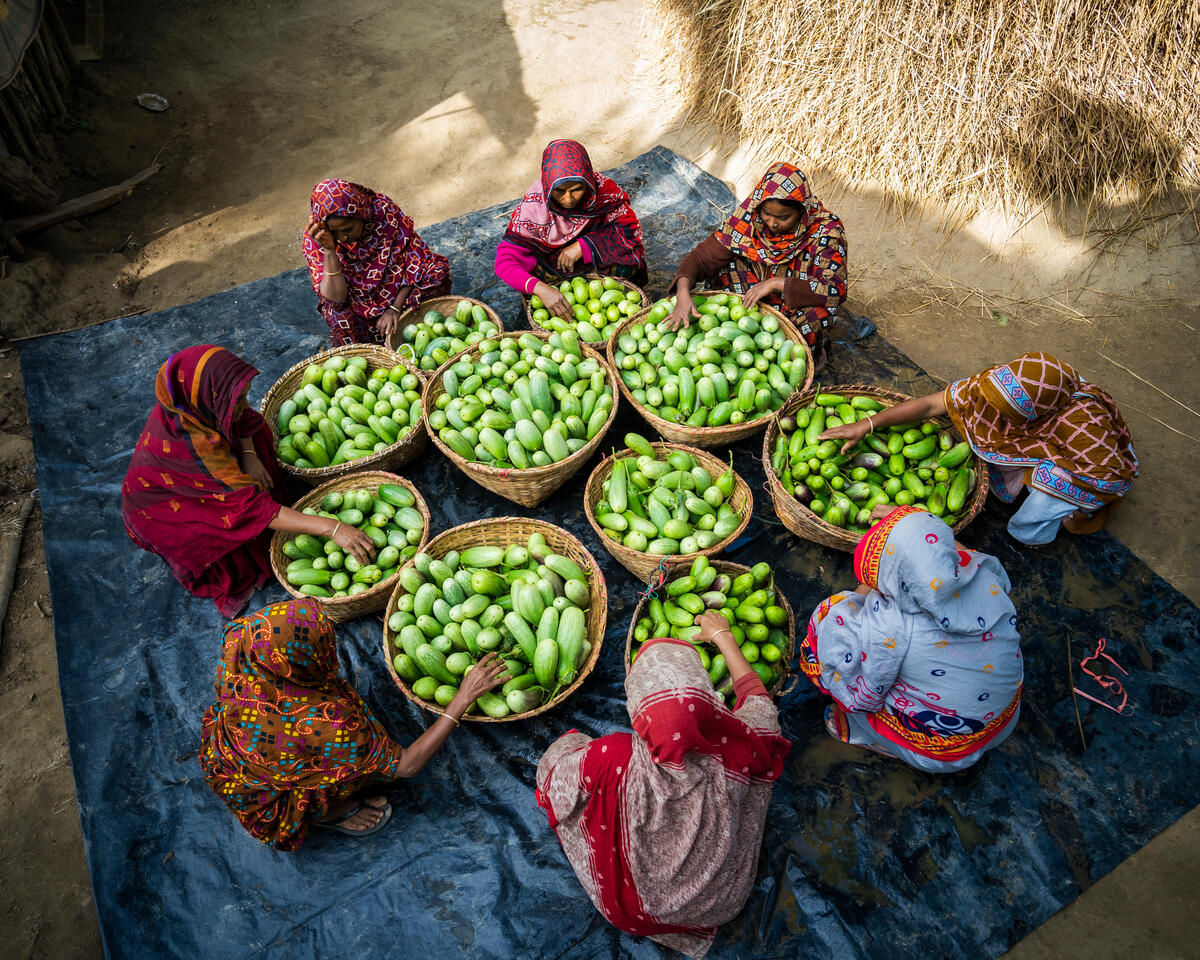Growing Entrepreneurship: How WFP Is Empowering Women in the World’s Largest Refugee Camp
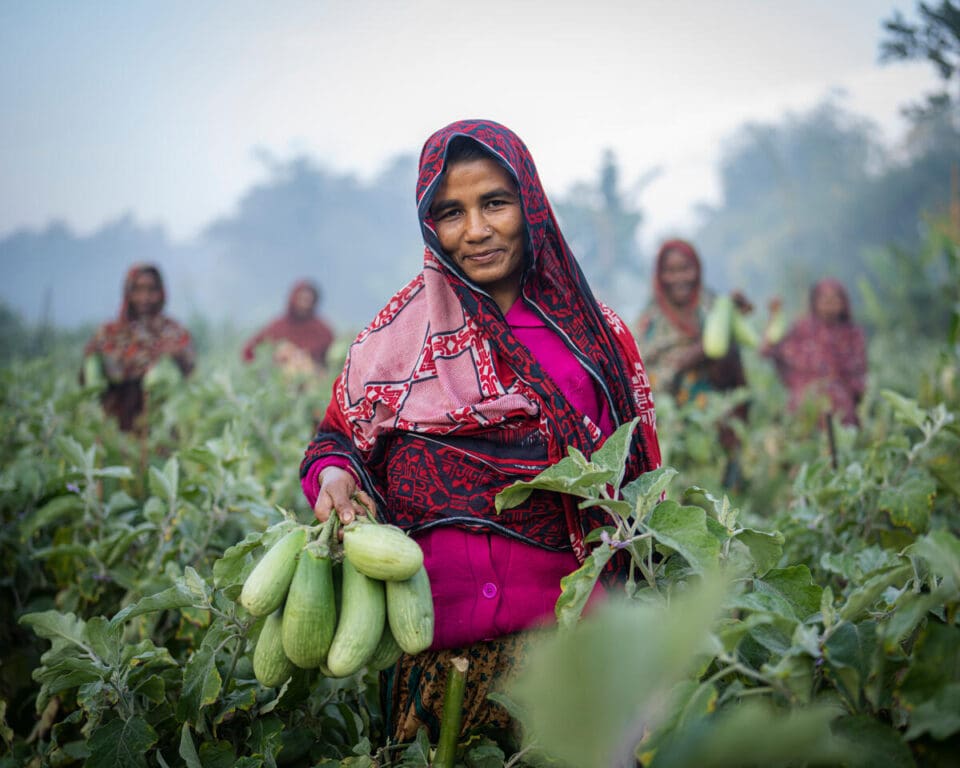
Four years ago, shortly after hundreds of thousands of Rohingya refugees arrived in her community of Cox’s Bazar, Hason Ara received food rations from the United Nations World Food Programme (WFP). At the time, her husband – a food trader – was struggling to find any work. With rising prices, they could not afford to put food on the table for their family of eight. Hason and her husband often skipped meals so that their children could eat. Having chicken or fish was a fantasy.
In 2018, Hason Ara enrolled in a U.N. World Food Programme project designed to help the most vulnerable rural women of Cox’s Bazar start or expand their own economic ventures. The project’s goal was to increase participants’ incomes and boost their access to nutritious foods.
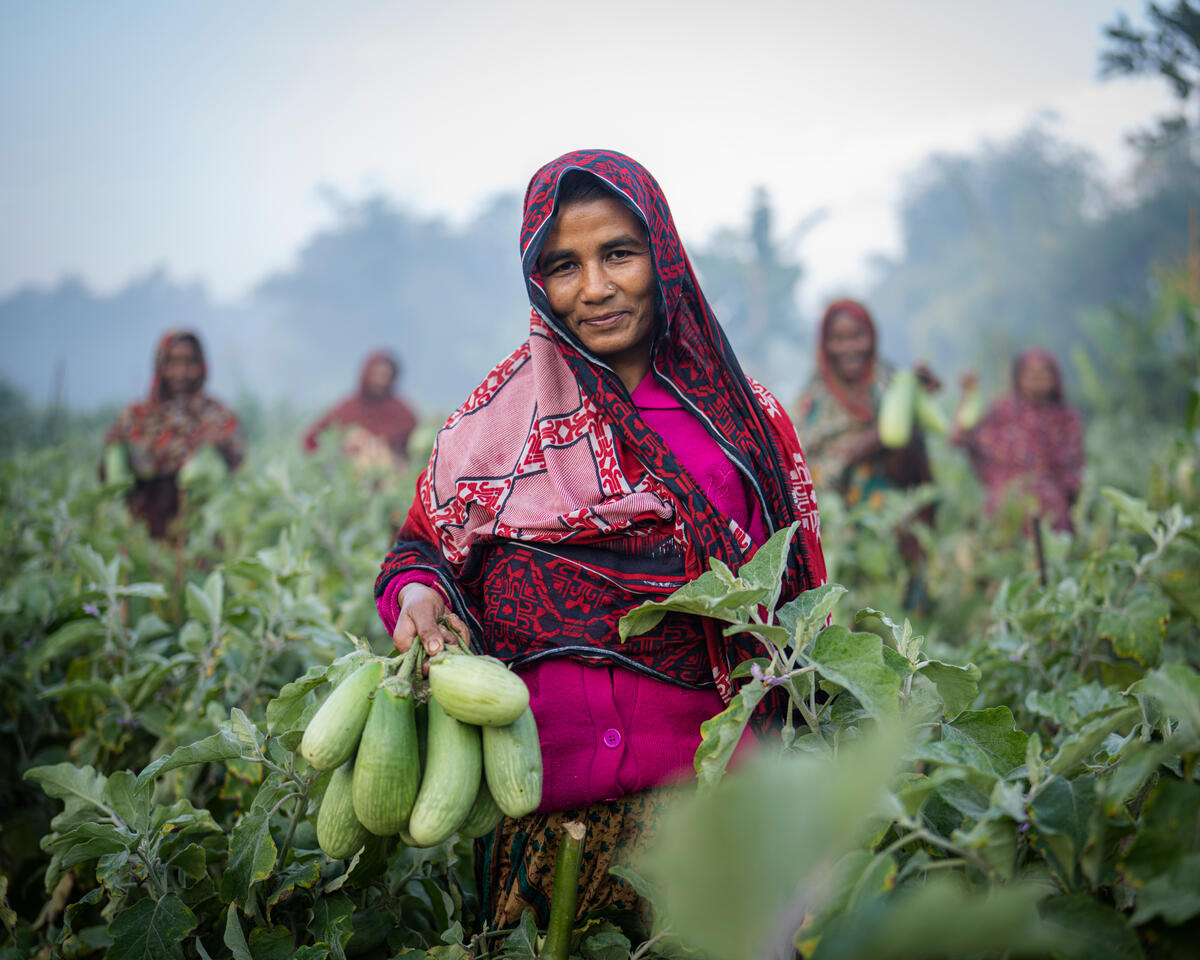
The WFP program aims to help women gain marketable skills and financial literacy as they start their own businesses.
She, and hundreds of other women in her community, received a $180 grant from the U.N. World Food Programme, which they used to start growing vegetables and raising livestock. Participants learned how to prepare a business plan, how to safely gather and deposit savings, and how and where they could sell any surplus. They also learned accounting and basic financial management.
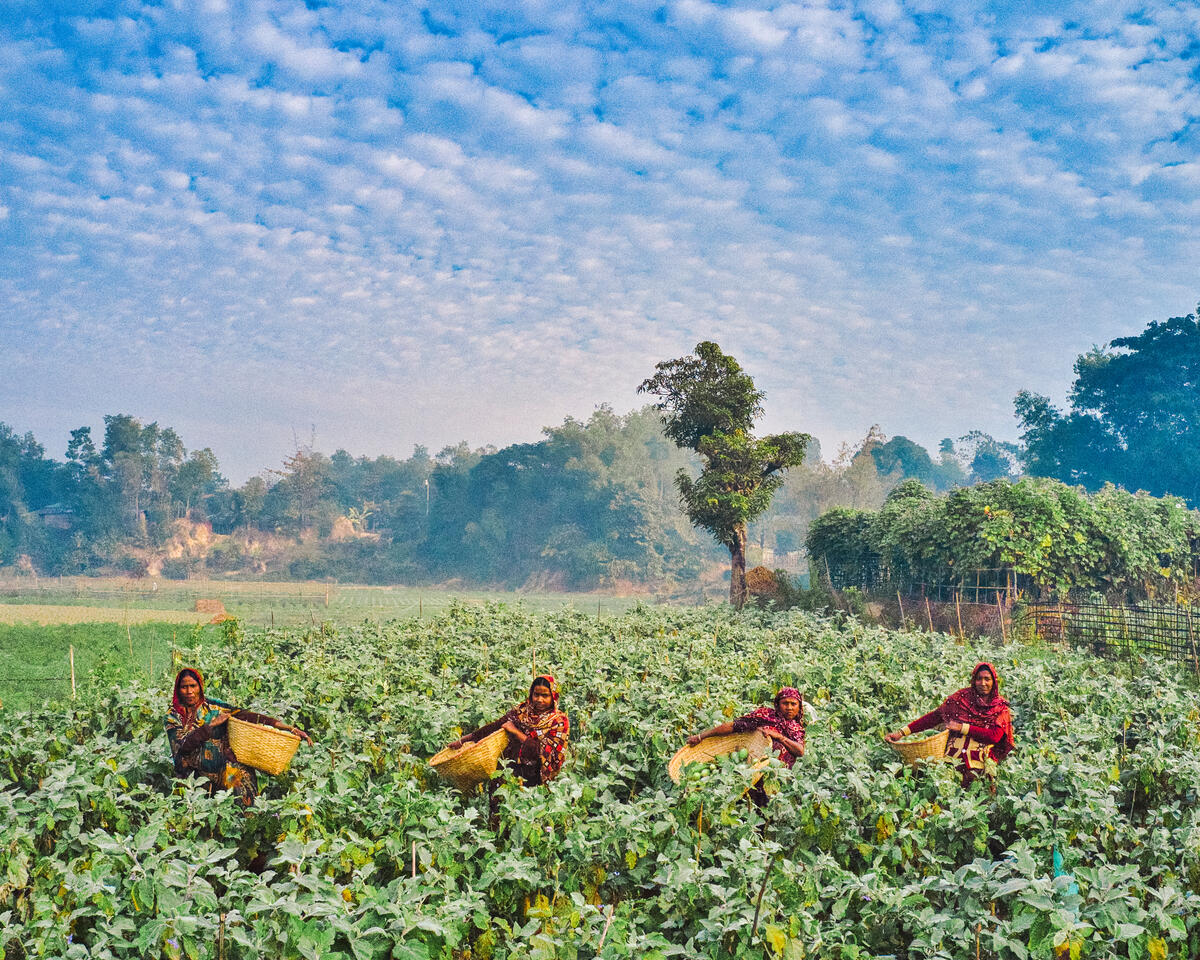
Hason harvest vegetables with other women in her farming group.
“We were taught how to take care of savings, how to negotiate with buyers, and even how to protect and store our crops to prevent losses. I was taught how to deal with insects and who to call if there is an infestation,” said Hason.
At the start, Hason Ara’s farming group of 23 women produced an average of nearly 200 pounds of vegetables per week. Now, the average week brings in over 600 pounds.
Photo: WFP/Sayed Asif Mahmud/2022Hason Ara and her fellow farming group members sort freshly collected eggplants.
“We have more land now. The land feeds us. What we cannot eat, we can sell,” she said.
The profits of Hason Ara and her group are divided equally among members. Over four years, those profits have grown steadily – allowing her to build a house, pay for the education of her six children and support her adult children’s marriages.
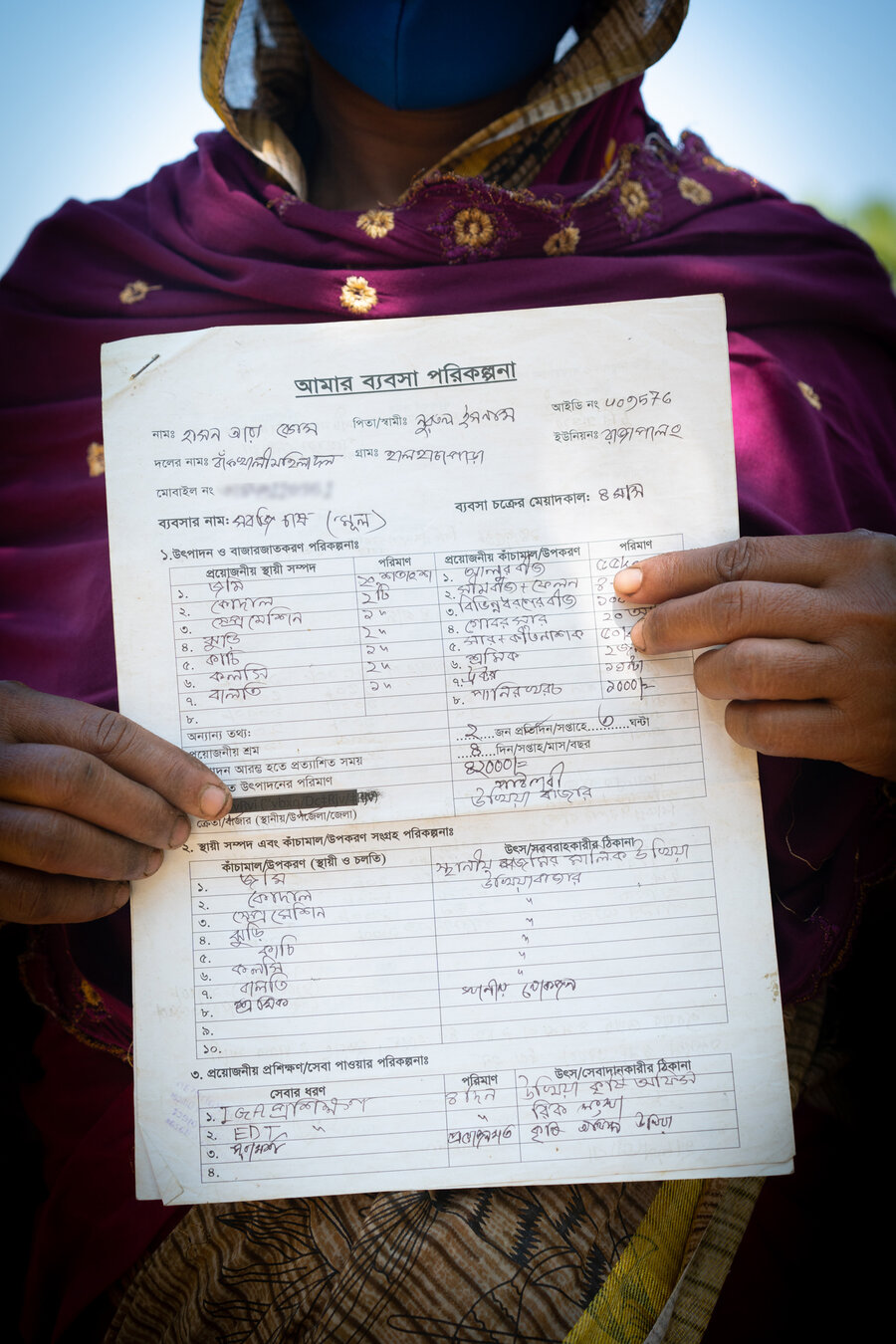
Hason Ara displays her business plan.
“I even bought tables and chairs so my children can study at home.”
Hason Ara is now the main breadwinner of her family and no longer relies on the U.N. World Food Programme’s food assistance to feed her children. Her husband supports the farm.
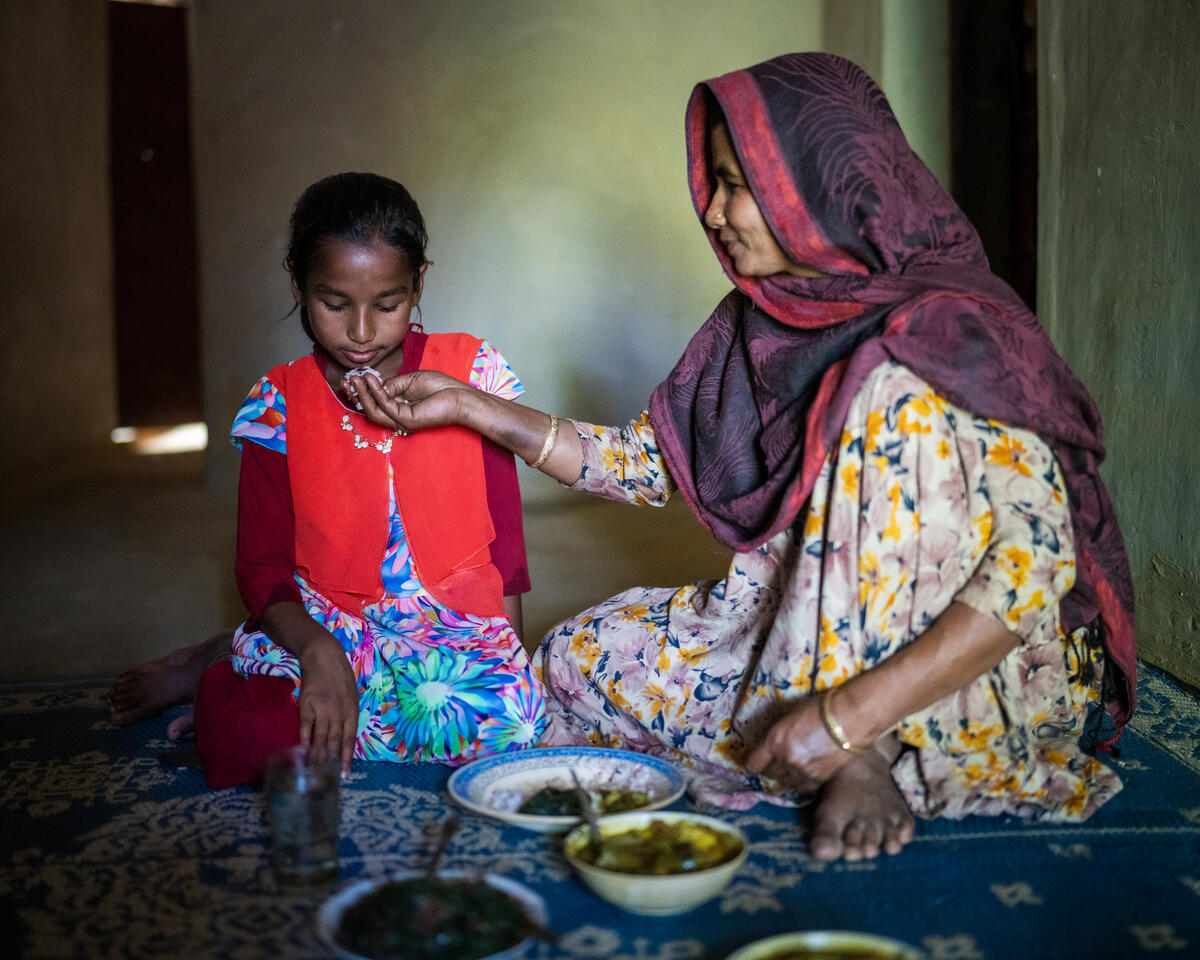
Hason Ara’s earnings helped her feed her family and send all her children to school.
Learning new skills and finding success in her business helped Hason Ara gain confidence. She started leading community discussions, reminding other women of the importance of good nutrition and sound economic management: saving, investing and not giving up after difficulties or a bad harvest.
“Being so successful in this program built my confidence and inspired me to do more,” she said. “I have realized that I can work well, and I know that I am capable of more. People in the community respect me and often come to me to solve quarrels. I have found the confidence and courage to solve issues: If a family cannot afford to support their marriages, I help raise funds in the community to pay for it. At the same time, I often speak out to prevent the early marriages of the younger girls.”
Now, Hason Ara wants to become a community leader in her local government. “I have more ambition than in the past. I know that women can solve problems without involving a man, and I even think we are better at it.”
This story originally appeared on WFP’s Stories on March 8, 2022 and was written by Antoine Vallas.
